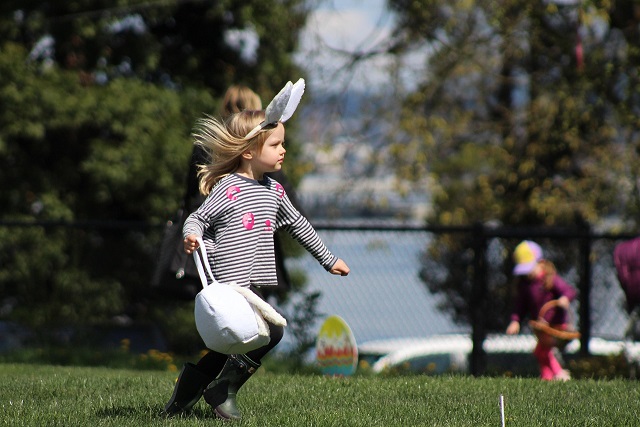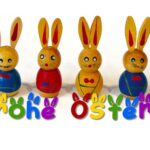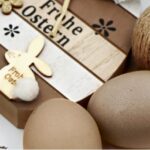
In Germany, Easter isn’t complete without an Ostereiersuche (Easter egg hunt)! Every year, families gather in gardens, parks, and forests, where children excitedly search for colorful eggs hidden by the legendary Osterhase (Easter Bunny).
But did you know that Germany is one of the birthplaces of the Easter egg hunt tradition? Dating back hundreds of years, this beloved activity has roots in pagan fertility rites, Christian symbolism, and centuries-old folklore.
Let’s explore the history, traditions, and best places in Germany to experience an authentic Easter egg hunt.
The Origins of Easter Egg Hunts in Germany
The Easter egg hunt is believed to have originated in medieval Germany, evolving from pagan fertility customs and Christian Easter celebrations.
1. Pagan and Pre-Christian Traditions
Before Christianity arrived in Germany, the ancient Germanic tribes celebrated spring fertility festivals in honor of Eostre (or Ostara), the pagan goddess of spring.
- Eggs were symbols of fertility and renewal, representing new life and the rebirth of nature.
- Coloring eggs and hiding them was a ritual meant to bring good fortune and ensure a bountiful harvest.
Read more: The History of Easter in Germany: Pagan Roots to Christian Traditions
2. The Christian Influence: Easter Eggs as a Religious Symbol
As Christianity spread, Easter eggs took on a new meaning:
- Eggs became symbols of Christ’s resurrection, representing the tomb breaking open and new life emerging.
- The tradition of “egg fasting” during Lent led people to boil and dye eggs to preserve them for Easter.
- Egg hunts became a playful way for children to celebrate Easter Sunday, symbolizing the discovery of Christ’s empty tomb.
How the Osterhase (Easter Bunny) Became the Egg Hider
By the 17th century, German folklore introduced the Osterhase (Easter Hare), a mythical creature that laid and hid colorful eggs for well-behaved children to find on Easter morning.
- The first written mention of the Osterhase comes from 1682, in a German text describing egg-laying hares that rewarded children with treats.
- The custom spread across Germany and neighboring countries, becoming a beloved Easter tradition.
Read more: The Fascinating Story Behind the German Easter Bunny (Osterhase)
Easter Egg Hunt Traditions in Germany Today
Easter egg hunts remain one of the most exciting parts of Easter in Germany, blending family fun with centuries-old customs.
1. Traditional Egg Hunts at Home
Most German families organize Easter egg hunts in their gardens or local parks on Easter Sunday morning.
- Parents hide chocolate eggs, marzipan bunnies, and small gifts for children to find.
- Some families use hard-boiled eggs dyed in vibrant colors, a tradition dating back centuries.
2. Public Easter Egg Hunts in Parks and Castles
Across Germany, many cities and towns organize large-scale public egg hunts, often held in historic castles, nature parks, and botanical gardens.
- Schloss Schwetzingen (Baden-Württemberg): One of the biggest Easter egg hunts in Germany, taking place in Schwetzingen Castle’s gardens.
- Brandenburg Easter Forest Hunt: Children search for eggs hidden among trees and hiking trails, blending nature and tradition.
- Berlin Tiergarten Easter Hunt: The capital’s largest egg hunt, featuring games, music, and Easter markets.
Read more: German Easter Markets: Where to Find the Best Easter Celebrations
3. The “Golden Egg” Tradition in Some Regions
In some parts of Germany, one special egg—the Golden Egg—is hidden among the others.
- The child who finds the Golden Egg receives a special prize, such as a large chocolate bunny or an Easter gift.
- This tradition is particularly popular in Bavaria and Saxony.
Easter Egg Decoration: A Key Part of the Tradition
Egg decorating is an important Easter custom in Germany, often done before the big hunt.
The Art of Sorbian Easter Egg Painting
In Saxony and Brandenburg, the Sorbian ethnic minority practices intricate wax-resist egg painting, creating:
- Hand-painted eggs with detailed geometric patterns.
- Natural dyes made from onion skins, beets, and herbs.
These handcrafted Easter eggs are sometimes hidden during Easter egg hunts or given as gifts.
Read more: Decorating Easter Eggs in Germany: The Art of Sorbian and Hand-Painted Eggs
Famous Easter Egg Hunts in Germany
Looking for the best Easter egg hunts in Germany? Here are some must-visit locations:
1. The Thuringian Easter Egg Hunt in Saalfeld
- Hosted in the town famous for the world’s largest Easter tree, decorated with over 10,000 eggs.
- A massive public Easter egg hunt takes place in the town’s parks.
2. The Heidelberg Castle Easter Celebration
- Held in the scenic ruins of Heidelberg Castle, featuring a giant Easter egg hunt for children.
- Includes medieval-style Easter festivities, food stalls, and traditional music.
3. The Easter Egg Hunt at Munich’s Olympic Park
- One of Bavaria’s largest Easter events, featuring a treasure hunt, live performances, and family activities.
- A mix of traditional and modern Easter celebrations.
The Easter Egg Hunt vs. Other German Easter Traditions
While egg hunts are the highlight for children, Easter in Germany also includes:
- Osterfeuer (Easter Bonfires) – Huge bonfires lit on Holy Saturday to welcome spring and chase away winter.
- Osterbrunnen (Easter Fountains) – Public fountains in Bavaria and Franconia decorated with eggs and garlands.
- Gründonnerstag (Green Thursday) – A tradition of eating green foods, like herb soup and spinach before Easter.
Read more: The Symbolism of Easter Fires (Osterfeuer) in Germany
Osterbrunnen – The Stunning Easter Fountains of Bavaria and Franconia
Why Do Germans Eat Green Food on Maundy Thursday?
Easter egg hunts are one of Germany’s most cherished traditions, blending pagan, Christian, and folk influences into a fun-filled family event.
Whether in a backyard garden, a historic castle, or a public Easter fair, the Ostereiersuche remains a highlight of German Easter celebrations.
Want to Learn More About German Easter?







